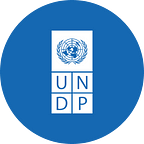Working in new ways to transform complex systems
At UNDP Innovation we are on a journey to shift our approach to innovation to help tackle complex development challenges. In short, we are moving away from single point solutions, and instead we are trying to figure out how to develop interventions that are more coherent with the nature of complex systemic challenges. On this blog, I’m sharing (in “real time”) my reflections, insights and ramblings emerging from this exciting and immensely difficult journey. You can find the past blogs in this series here and here.
9–13 November: Ways of working
Organizations function and deliver against their mandates through various ways of working. Ways of working refer to the logics, practices, and processes whereby people and teams in an organization do their work. These may vary from open-ended iterative learning focused experimentation to processes aimed at quick and efficient delivery of tangible products (such as a report or the construction of a building).
Different ways of working are appropriate for different types of objectives and tasks. The UK government’s Policy Lab has developed a useful “Government as a System” toolkit which lays out different ways in which government works in practice (from influence and engage to deliver and control) and shows how these vary according to the ways government exercises power (from softer collaborative modes to formal “hard” types of enforcement).
The UNDP also displays a variety of ways of working. A popular one is output delivery — the systems and day-to-day activities focused on designing and implementing solutions to problems through tangible point-in-time outputs (such as a survey or piece of infrastructure). This can be a very effective way of working when problems are clearly understood and solutions readily at hand, and it is merited given we work with limited resources to tackle urgent problems faced by poor and disenfranchised people across the globe.
However, the “delivery” focused way of working is not always useful. It can prevent us from exploring, learning, and identifying better ways of tackling complex problems. The issue is twofold. First, it can lead us to quickly jump into solution mode rather than trying to understand the problem. This dynamic is quite well documented and we (and many others) have discussed it elsewhere (see here, here, and here).
Second, the focus on doing instills a particular logic to how we work with partners and contractors. By partners and contractors, I mean the individuals, NGOs, and private companies that we (i.e. UNDP) hire from time to time to help us.
Problems arise if we apply systems and processes designed for procurement and management of tangible point-in-time outputs to iterative learning focused collaborations. Working on understanding and transforming systems — say in relation to marginalized groups in Colombia or depopulation in Serbia — is an iterative learning journey where distinct point in time outputs (such as a report) are not as important as the process whereby we engage in and learn about a system in collaboration with partners. If we insist on monitoring how we and partners deliver tangible point-in-time outputs (such as report or particular visual) then we risk throwing the “learning-baby” out with the bathwater — we risk that the really important results become invisible to us and we instead pay attention to artefacts that aren’t as important in their own right.
This can create the wrong incentives for our partners and contractors. If our calls for proposals and project management systems adopt an output delivery focus, then a contractor will naturally focus on putting together teams that can deliver tangible outputs, at a particular point in time and in an efficient and effective way — even if what we actually need is a partner to assist us through a learning journey.
In addition, our ways of doing contracting and establishing partnerships can make it hard for us to bring new partners into the fold of collaborators. Sometimes, potential partners may be crucial for us to learn more about a system, but they might not be interested in a “traditional” contractual relation with UNDP. At other times, actors (such as individual activists or informal waste collection groups) may not have the bandwidth or right paperwork to be able to enter into a formal contractual relation. In either of these cases, our ways of working can hinder our ability to have an impact.
But what if we want our partners to work with us rather than for us, what if our funding was relational rather than transactional, as we try to avoid the risk of adopting an output delivery mindset at the expense of one focused on the learning process? We are asking ourselves this question and we are trying to find answers. But it is challenging for us, and it can be challenging for partners. The fact that we are all busy does not make things easier, because it creates the temptation to simply “get the consultants to do the work” rather than having them assist us through a lengthy, expensive (in time and resources), and at times frustrating learning process.
We are lucky to work with many partners that understand what we are trying to do and are willing to work with us to do it. Nevertheless, this remains an ever-present challenge as we try to rewire our brains from delivery of things towards iterative learning.
This work has been made possible with the generous support from Denmark.
